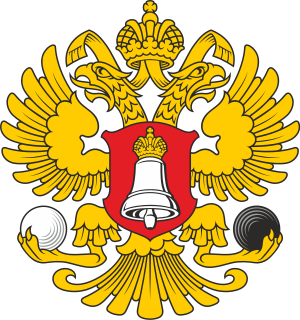The Citizens' Group on Electoral Process (CGEP) is a Pakistani organisation created to ensure that free, fair and credible elections take place in the country. The first Chairman of the CGEP was Chief Justice (R) Saeeduzzaman Siddiqui. [1]
The Citizens' Group on Electoral Process (CGEP) is a Pakistani organisation created to ensure that free, fair and credible elections take place in the country. The first Chairman of the CGEP was Chief Justice (R) Saeeduzzaman Siddiqui. [1]

An election is a formal group decision-making process by which a population chooses an individual or multiple individuals to hold public office.
Disfranchisement, also called disenfranchisement, or voter disqualification is the restriction of suffrage of a person or group of people, or a practice that has the effect of preventing a person exercising the right to vote. Disfranchisement can also refer to the revocation of power or control of a particular individual, community or being to the natural amenity they have; that is to deprive of a franchise, of a legal right, of some privilege or inherent immunity. Disfranchisement may be accomplished explicitly by law or implicitly through requirements applied in a discriminatory fashion, through intimidation, or by placing unreasonable requirements on voters for registration or voting.
Forms of electoral fraud, sometimes referred to as election manipulation, voter fraud or vote rigging, involves illegal interference with the process of an election, either by increasing the vote share of a favored candidate, depressing the vote share of rival candidates, or both. It differs from but often goes hand-in-hand with voter suppression. What exactly constitutes electoral fraud varies from country to country.

The Party of the Democratic Revolution is a social democratic political party in Mexico. The PRD originated from the Democratic Current, a political faction formed in 1986 from the Institutional Revolutionary Party (PRI). The PRD was formed after the contested general election in 1988, which the PRD's immediate predecessor, the National Democratic Front, believed was rigged by the PRI. This sparked a movement away from the PRI's authoritarian rule.
In electoral systems, voter registration is the requirement that a person otherwise eligible to vote must register on an electoral roll, which is usually a prerequisite for being entitled or permitted to vote. The rules governing registration vary between jurisdictions. In most jurisdictions, voting and registration is optional, while in others registration and voting are compulsory for citizens of voting age.
The Citizens' Assembly on Electoral Reform was created by the government of British Columbia, Canada to investigate changes to the provincial electoral system. On 25 October 2004, it proposed replacing the province's existing first past the post (FPTP) system with BC-STV, a single transferable vote (STV) system. This recommendation was put to the electorate-at-large in a referendum held concurrently with the 2005 provincial election. In order for the results to be binding, the referendum required a super-majority including approval by 60% of voters overall and simple majorities in 60% of the 79 districts in order to pass. In the event, the second of these thresholds was easily met, with a majority supporting the reform in 77 out of 79 electoral districts, but the overall vote fell short of the 60% requirement, with 57.7% of the votes in favour.
An absentee ballot is a vote cast by someone who is unable or unwilling to attend the official polling station to which the voter is normally allocated. Methods include voting at a different location, postal voting, proxy voting and online voting. Increasing the ease of access to absentee ballots is seen by many as one way to improve voter turnout through convenience voting, though some countries require that a valid reason, such as infirmity or travel, be given before a voter can participate in an absentee ballot. Early voting overlaps with absentee voting. Early voting includes votes cast before the official election day(s), by mail, online or in-person at voting centers which are open for the purpose. Some places call early in-person voting a form of "absentee" voting, since voters are absent from the polling place on election day.

The Citizen Left Party of Chile, known until 2013 as Christian Left Party of Chile was a Chilean left-wing political party. Founded in 1971, in its early days it was suppressed by the Pinochet dictatorship. It was part of the Nueva Mayoría coalition, supporting the presidential candidacy president Michelle Bachelet in 2013.

Election monitoring involves the observation of an election by one or more independent parties, typically from another country or from a non-governmental organization (NGO). The monitoring parties aim primarily to assess the conduct of an election process on the basis of national legislation and of international election standards. There are national and international election observers. Monitors do not directly prevent electoral fraud, but rather record and report instances of suspicious practices. Election observation increasingly looks at the entire electoral process over a long period of time, rather than at election-day proceedings only. The legitimacy of an election can be affected by the criticism of monitors, unless they are themselves seen as unbiased. A notable individual is often appointed honorary leader of a monitoring organization in an effort to enhance legitimacy of the monitoring process.

The National initiative is a proposed process to petition an initiative at the federal level in the United States via a national vote on the national ballot measure. While some U.S. states allow direct or indirect initiatives, there are currently no national initiatives in the United States.
The Sixth Party System is the era in United States politics following the Fifth Party System. As with any periodization, opinions differ on when the Sixth Party System may have begun, with suggested dates ranging from the late 1960s to the 1980s and beyond. Nonetheless, there is agreement among scholars that the Sixth Party System features strong division between the Democratic and Republican parties, which are rooted in socio-economic, class, cultural and racial issues, and the proper role of government.

Parliamentary elections were held in Chad on Sunday, 13 February 2011, the first since 2002. The elections were originally scheduled for 28 November 2010, but were postponed following a meeting in September between the ruling party and opposition leaders. According to the National Independent Electoral Commission (CENI), this was due to timing constraints caused by complications encountered during electoral preparations.

The Central Election Commission of the Russian Federation is the superior power body responsible for conducting federal elections and overseeing local elections in the Russian Federation founded in September 1993. It consists of 15 members. The President of Russia, State Duma and Federation Council of Russia each appoint five members. In turn, these members elect the Chairman, Deputy Chairman and Secretary. The Commission is in power for a four-year term.

Following the 2005 electoral reform referendum, British Columbia held a second referendum on electoral reform in conjunction with the provincial election on May 12, 2009. As in 2005, voters in 2009 were asked were asked which electoral system should be used to elect legislators: the existing first-past-the-post electoral system or the BC single transferable vote electoral system (BC-STV) proposed by the British Columbia Citizen's Assembly on Electoral Reform to ensure more proportional representation in the provincial Legislative Assembly.
In governance, sortition is the selection of political officials as a random sample from a larger pool of candidates. Sortition is generally used for filling individual posts or, more usually in its modern applications, to fill collegiate chambers. The system intends to ensure that all competent and interested parties have an equal chance of holding public office. It also minimizes factionalism, since there would be no point making promises to win over key constituencies if one was to be chosen by lot, while elections, by contrast, foster it. In ancient Athenian democracy, sortition was the traditional and primary method for appointing political officials, and its use was regarded as a principal characteristic of democracy.

The election of the president and the vice president of the United States is an indirect election in which citizens of the United States who are registered to vote in one of the fifty U.S. states or in Washington, D.C., cast ballots not directly for those offices, but instead for members of the Electoral College. These electors then cast direct votes, known as electoral votes, for president, and for vice president. The candidate who receives an absolute majority of electoral votes is then elected to that office. If no candidate receives an absolute majority of the votes for president, the House of Representatives elects the president; likewise if no one receives an absolute majority of the votes for vice president, then the Senate elects the vice president.
The Electoral Court is the autonomous court which oversees elections and electoral results at all levels of Uruguayan government: national and local elections, referendums, etc.

A citizens' assembly is a body formed from randomly selected citizens to deliberate on important issues.
The National Identity Card or NID card is a compulsory identity document issued to every Bangladeshi citizen upon turning 18 years of age. The NID is a government issued photo ID just like the Bangladeshi Driver's license, which is also a biometric, microchip embedded, smart identity card. The NID is required by Bangladeshi citizens for multiple essential public services, such as obtaining utility connections, as well as private services, such as opening bank accounts, in Bangladesh. Initially, paper based laminated NID cards were issued since 2006. Then, the paper based laminated NID cards were replaced by biometric and microchip embedded Smart NID cards for all adult citizens in Bangladesh from 2016 onwards. This was done to ensure security for the cardholder as well as prevent counterfeiting and fraudulence. The government provides the Smart NID card free of charge to all adult citizens of Bangladesh.
Policy and Legal Advocacy Centre (PLAC) is a Nigerian independent, non-profit and non-partisan civil society organisation that works to strengthen democratic governance, citizens’ participation and engagement with public institutions in Nigeria.